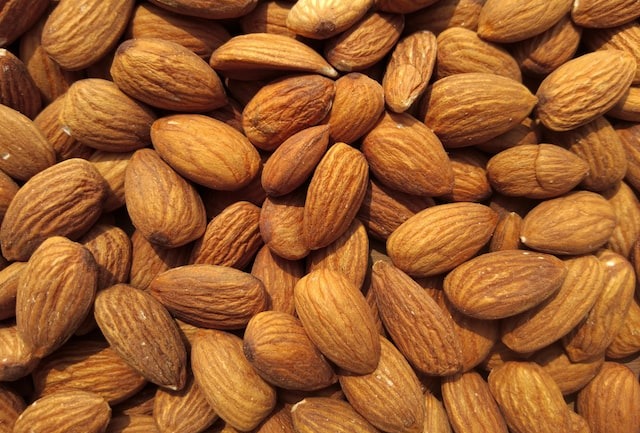
In W42 in the almond landscape, the "China Nut Annual Report" by the United States Department of Agriculture (USDA) projects China's almond production to decrease significantly to 5 thousand tons due to damage caused by low temperatures in Xinjiang. Almonds are primarily produced in Yarkand, which has a stable planting area of approximately 60 thousand ha but yields low-output varieties. China's almond imports are set to grow in the 2023/24 season due to ample global supply, low prices, and domestic production cuts. Despite a 43% YoY decrease in Australian almond production, increased production in California and Spain is forecasted to bolster global almond supply. Falling almond prices since 2021 have led to increased purchases by Chinese importers, with Spain entering the Chinese market as the second-largest almond producer. The US remains the largest almond supplier to China, although its market share has diminished due to retaliatory tariffs, while Australia's share is on the rise thanks to free trade agreements.
The formal removal of retaliatory tariffs on agricultural products entering India, effective since early Sep-23, is expected to boost demand in the country, according to United States (US) almond industry officials. The tariffs dropped to USD 0.42 per kilogram (INR 35/kg) of in-shell almonds and USD 1.20/kg (INR 100/kg) of kernels, down from the previous rates of USD 0.49/kg (INR 41/kg) of in-shells almonds, and USD 1.45/kg (INR 120/kg) of kernel in Jul-23. The Almond Board of California expressed satisfaction with the tariff removal, aiming to enhance demand and reduce consumer costs in India, the largest export destination for California almonds. Ongoing discussions are in progress to further improve export conditions related to tariffs and technical barriers.
Italian customs recently seized approximately 20 thousand kilograms of almonds imported from the United States (US) at ports in the Liguria region. The seizure was due to concerns about a significant breeding problem of parasites and mold in the almond batch, posing potential health risks to consumers. The importer appealed to the local administrative court, claiming the almonds were "seriously defective," but the court ruled against the importer. As a result, the almonds have been banned from the market, and they will undergo extensive industrial processing to meet safety standards before being made available for consumption.
Furthermore, the almond industry in Sicily, Italy, faces a challenging situation with reduced production due to adverse climatic conditions and declining prices. The 2023 harvest has seen a notable drop in production, and local almond prices have plummeted to levels where many producers find it unprofitable to sell. The market is currently at a standstill, with the imported Californian and Spanish almonds dominating due to their low prices. The existing stocks from 2022 are still significant, further exacerbating the issue. The Sicilian almond sector is at risk of damage, and there's a trend toward abandoning or converting almond orchards into other uses. The Sicilian almond industry is under significant pressure, jeopardizing an area of 35 thousand hectares (ha) dedicated to almond cultivation.
Lastly, the President of Türkiye has implemented changes to the import regime, with significant increases in customs tax rates for almond and walnut imports. The customs tax rate for almonds has been raised from 2% to 15%, increasing costs from USD 452 to USD 580 per metric ton (mt) for shelled almonds and from USD 818 to USD 942/mt for unshelled almonds. Similarly, the customs tax rate for walnut imports has been increased from 4% to 15%, with financial liabilities rising from USD 307 to USD 416 per metric ton for shelled walnuts and from USD 573 to USD 1,099 per metric ton for unshelled walnuts. Furthermore, there is now a 1% customs duty for almond imports from the United Arab Emirates (UAE) and a 2% duty for walnut imports. These regulations will come into effect one month after their publication.